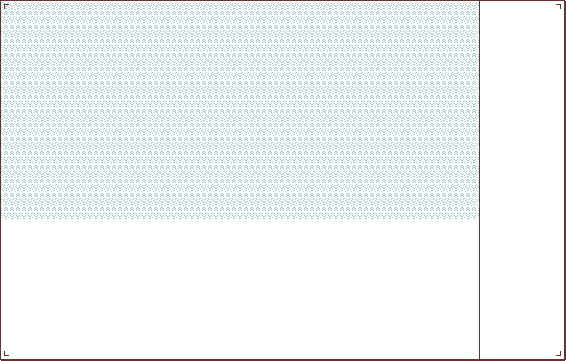 John Perry Barlow
John Perry Barlow
His greatest acheivement for the Internet was the foundation of the
Electronic Frontier Foundation (EFF) with
Mitchell Kapor in 1990. Long before most people had even heard of the Internet, EFF was fighting for civil liberties in the digital realm, protecting freedom of expression and privacy on computers and the Internet.
Barlow ‘is a recognized commentator on information economics, digitized intellectual goods, cyber liberties, virtual community, electronic cash, cryptography policy, privacy, and the social, cultural, and legal conditions forming in Cyberspace.’
His
The Economy of Ideas and
A Declaration of the Independence of Cyberspace have become incredibly influential works in Internet thought.
 Tim Berners-Lee
Tim Berners-Lee
‘Tim invented the World Wide Web in late 1990 while working at CERN, the European Particle Physics Laboratory in Geneva, Switzerland. He wrote the first WWW client (a browser-editor running under NeXTStep) and the first WWW server along with most of the communications software, defining URLs, HTTP and HTML.’
He built the Web on the foundation of shared exploration and open information which still stands as a pillar for all web-workers.
 Douglas Engelbart
Douglas Engelbart
In 1964, Engelbart began work on one of the great Internet precursors, the Augment Workstation.
These workstations were seen as windows into a shared world of infromation, where people could work collectively, interweaving and even editing documents together.
Today, his Bootstrap Institute still works for the same ideals, citing it's mission as seeking to ‘
Enable a whole new way of thinking about the way we work, learn, and live together’
and to ‘
Promote development of a collective IQ among, within, and by networked improvement communities.’
 Guy Debord
Guy Debord
Although his
greatest work was written long before the Internet created it's own virtual world, Debord's writings and films speak to the same issues of psuedo-society and commercialization of culture we tangle with on the Internet today.
If I had to spend eternity with just one book, I think
this would be it.
 Paulo Friere
Paulo Friere
This is another man who's greatest work was acheived outside the realm of the Internet. But his ideas on Activism are essential for anyone working for social change.
In
Pedagogy of the Oppressed, he approaches social activism not just as a battle between ‘Us’ and ‘Them’, but as a communal process of education for all involved.
He also attacked the fragmentation and ownership of society long before patents on life and the abuse of the concept of intellectual property made this trend so painfully apparent.
‘The oppressor consciousness tends to transform everything surrounding it into an object of its domination. The earth, property, production, the creations of men, men themselves, time - everything is reduced to the status of objects at its disposal.’
‘A real humanist can be identified more by his trust in the people, which engages him in their struggle, than by a thousand actions in their favour without that trust.’
Geert Lovink
A member of Adilkno, the Foundation for the Advancement of Illegal Knowledge, he works for social change through independant media, including work with the Internet and camcorders.
Through
nettime, he has helped raise the level of discussion of Internet culture. Textual LSD, the
nettime mailing list offers mind-expansion delivered to your inbox daily!
I can't reccomend
joining this list enough; there really is nothing quite like it on the Internet.
 Ted Nelson
Ted Nelson
Where do I start? Ted Nelson is considered the inventor of the words ‘hypertext’ and ‘hypermedia’. But there's more than fancy linguistics to this man.
Xanadu is a step past the internet. With the concept of a
transcopyright, he hopes to create a commercial system which will realize all the abstract theories for intellectual property management on the Internet.
His 1974 book
Computer Lib (out of print but you can read some great reviews), written at the onset of the computer revolution, was a rabble-rousing foray into the personal computer's potential for social upheaval.
Clay Shirky
Clay Shirky is a rare breed: an Internet Analyst who's
a)not whoring his own product
b)Not full of shit
Writing on Economics & Culture, Media & Community, and Open Source, he has an amazing degree of foresight in his analyses, and a knack for putting complex concepts down in simple, accesible terms.
‘Professor Shirky's writings are currently focussed on:
* The Internet's effect in shifting power from producer to consumer in the media landscape.
* The Internet economy, and especially its effect on national culture.
* Open Source Software and the post-PC network ecology’
‘Clay testified against the Communications Decency Act as an expert witness on the culture of the Internet, in an amicus brief filed with the Supreme Court. Working with the Society for Electronic Access, he has filed commentary with the Federal Government concerning the Clipper chip "key escrow" scheme, Digital Signature Standards, and computer crime sentencing guidelines.’
Check his
bio here, and be sure to read this
classic piece at SlashDot.
 Linus Torvalds
Linus Torvalds
Linus was a major force behind
Linux, and with the help of
EFF, helped popularize the
GNU General Public License (GPL), an
Open Source business model that allows people to develop and profit from each other's work, as long as they keep their source open and allow others to similarly profit.
Whether or not Linux ever really impacts Microsoft's monopoly, his popularization of the GPL alone is a fantastic contribution to society.
 Jeffrey Zeldman
Jeffrey Zeldman
The internet may have started out with ideals of open standards, but as big corporations got into the show and the browser wars began, the web became an increasingly fragmented place. Flying in the face of the
W3C's standards, Explorer and Navigator began to implement their own proprietary methods for digesting content on the web.
In order to support these maverick browsers, developers had to create several versions of every site, or spend countless hours working around the proprietary quirks of each browser and version.
But this isn't about wasting web designer's time.
The big issue is that barriers of entry had suddenly been thrust on what was meant to be an open industry. An independent programmer creating a browser could no longer be confident that his or her browser would work if he or she stuck to the accepted guidelines.
Now, the programmer had to worry about what the big guys were doing, actually
mimicking their bugssince everyone was coding that way anyway.
Essentially, a few corporations were dictating the guidelines of the web, flying in the face of accepted open standards.
But then, Jeffrey to the rescue!
WaSP, The Web Standards Project, was founded to get these boys back on track. Through relentless
awareness-raising in the web community, the
browser upgrade campaign, and pressure on the big browser makers, WaSP has made the Web a much cleaner place, at least code-wise.
There's still a while to go, but the latest version of both Explorer and Navigator comply with the W3C's open standards, and this would not have happened without the work of Jeffrey Zeldman and the other fine folk at WaSP.






 John Perry Barlow
His greatest acheivement for the Internet was the foundation of the Electronic Frontier Foundation (EFF) with Mitchell Kapor in 1990. Long before most people had even heard of the Internet, EFF was fighting for civil liberties in the digital realm, protecting freedom of expression and privacy on computers and the Internet.
Barlow ‘is a recognized commentator on information economics, digitized intellectual goods, cyber liberties, virtual community, electronic cash, cryptography policy, privacy, and the social, cultural, and legal conditions forming in Cyberspace.’
His The Economy of Ideas and A Declaration of the Independence of Cyberspace have become incredibly influential works in Internet thought.
John Perry Barlow
His greatest acheivement for the Internet was the foundation of the Electronic Frontier Foundation (EFF) with Mitchell Kapor in 1990. Long before most people had even heard of the Internet, EFF was fighting for civil liberties in the digital realm, protecting freedom of expression and privacy on computers and the Internet.
Barlow ‘is a recognized commentator on information economics, digitized intellectual goods, cyber liberties, virtual community, electronic cash, cryptography policy, privacy, and the social, cultural, and legal conditions forming in Cyberspace.’
His The Economy of Ideas and A Declaration of the Independence of Cyberspace have become incredibly influential works in Internet thought.
 Tim Berners-Lee
‘Tim invented the World Wide Web in late 1990 while working at CERN, the European Particle Physics Laboratory in Geneva, Switzerland. He wrote the first WWW client (a browser-editor running under NeXTStep) and the first WWW server along with most of the communications software, defining URLs, HTTP and HTML.’
He built the Web on the foundation of shared exploration and open information which still stands as a pillar for all web-workers.
Tim Berners-Lee
‘Tim invented the World Wide Web in late 1990 while working at CERN, the European Particle Physics Laboratory in Geneva, Switzerland. He wrote the first WWW client (a browser-editor running under NeXTStep) and the first WWW server along with most of the communications software, defining URLs, HTTP and HTML.’
He built the Web on the foundation of shared exploration and open information which still stands as a pillar for all web-workers.
 Douglas Engelbart
In 1964, Engelbart began work on one of the great Internet precursors, the Augment Workstation.
These workstations were seen as windows into a shared world of infromation, where people could work collectively, interweaving and even editing documents together.
Today, his Bootstrap Institute still works for the same ideals, citing it's mission as seeking to ‘Enable a whole new way of thinking about the way we work, learn, and live together’
and to ‘Promote development of a collective IQ among, within, and by networked improvement communities.’
Douglas Engelbart
In 1964, Engelbart began work on one of the great Internet precursors, the Augment Workstation.
These workstations were seen as windows into a shared world of infromation, where people could work collectively, interweaving and even editing documents together.
Today, his Bootstrap Institute still works for the same ideals, citing it's mission as seeking to ‘Enable a whole new way of thinking about the way we work, learn, and live together’
and to ‘Promote development of a collective IQ among, within, and by networked improvement communities.’
 Guy Debord
Although his greatest work was written long before the Internet created it's own virtual world, Debord's writings and films speak to the same issues of psuedo-society and commercialization of culture we tangle with on the Internet today.
If I had to spend eternity with just one book, I think this would be it.
Guy Debord
Although his greatest work was written long before the Internet created it's own virtual world, Debord's writings and films speak to the same issues of psuedo-society and commercialization of culture we tangle with on the Internet today.
If I had to spend eternity with just one book, I think this would be it.
 Paulo Friere
This is another man who's greatest work was acheived outside the realm of the Internet. But his ideas on Activism are essential for anyone working for social change.
In Pedagogy of the Oppressed, he approaches social activism not just as a battle between ‘Us’ and ‘Them’, but as a communal process of education for all involved.
He also attacked the fragmentation and ownership of society long before patents on life and the abuse of the concept of intellectual property made this trend so painfully apparent.
‘The oppressor consciousness tends to transform everything surrounding it into an object of its domination. The earth, property, production, the creations of men, men themselves, time - everything is reduced to the status of objects at its disposal.’
‘A real humanist can be identified more by his trust in the people, which engages him in their struggle, than by a thousand actions in their favour without that trust.’
Geert Lovink
A member of Adilkno, the Foundation for the Advancement of Illegal Knowledge, he works for social change through independant media, including work with the Internet and camcorders.
Through nettime, he has helped raise the level of discussion of Internet culture. Textual LSD, the nettime mailing list offers mind-expansion delivered to your inbox daily!
I can't reccomend joining this list enough; there really is nothing quite like it on the Internet.
Paulo Friere
This is another man who's greatest work was acheived outside the realm of the Internet. But his ideas on Activism are essential for anyone working for social change.
In Pedagogy of the Oppressed, he approaches social activism not just as a battle between ‘Us’ and ‘Them’, but as a communal process of education for all involved.
He also attacked the fragmentation and ownership of society long before patents on life and the abuse of the concept of intellectual property made this trend so painfully apparent.
‘The oppressor consciousness tends to transform everything surrounding it into an object of its domination. The earth, property, production, the creations of men, men themselves, time - everything is reduced to the status of objects at its disposal.’
‘A real humanist can be identified more by his trust in the people, which engages him in their struggle, than by a thousand actions in their favour without that trust.’
Geert Lovink
A member of Adilkno, the Foundation for the Advancement of Illegal Knowledge, he works for social change through independant media, including work with the Internet and camcorders.
Through nettime, he has helped raise the level of discussion of Internet culture. Textual LSD, the nettime mailing list offers mind-expansion delivered to your inbox daily!
I can't reccomend joining this list enough; there really is nothing quite like it on the Internet.
 Ted Nelson
Where do I start? Ted Nelson is considered the inventor of the words ‘hypertext’ and ‘hypermedia’. But there's more than fancy linguistics to this man.
Xanadu is a step past the internet. With the concept of a transcopyright, he hopes to create a commercial system which will realize all the abstract theories for intellectual property management on the Internet.
His 1974 book Computer Lib (out of print but you can read some great reviews), written at the onset of the computer revolution, was a rabble-rousing foray into the personal computer's potential for social upheaval.
Clay Shirky
Clay Shirky is a rare breed: an Internet Analyst who's
Ted Nelson
Where do I start? Ted Nelson is considered the inventor of the words ‘hypertext’ and ‘hypermedia’. But there's more than fancy linguistics to this man.
Xanadu is a step past the internet. With the concept of a transcopyright, he hopes to create a commercial system which will realize all the abstract theories for intellectual property management on the Internet.
His 1974 book Computer Lib (out of print but you can read some great reviews), written at the onset of the computer revolution, was a rabble-rousing foray into the personal computer's potential for social upheaval.
Clay Shirky
Clay Shirky is a rare breed: an Internet Analyst who's
 Linus Torvalds
Linus was a major force behind Linux, and with the help of EFF, helped popularize the GNU General Public License (GPL), an Open Source business model that allows people to develop and profit from each other's work, as long as they keep their source open and allow others to similarly profit.
Whether or not Linux ever really impacts Microsoft's monopoly, his popularization of the GPL alone is a fantastic contribution to society.
Linus Torvalds
Linus was a major force behind Linux, and with the help of EFF, helped popularize the GNU General Public License (GPL), an Open Source business model that allows people to develop and profit from each other's work, as long as they keep their source open and allow others to similarly profit.
Whether or not Linux ever really impacts Microsoft's monopoly, his popularization of the GPL alone is a fantastic contribution to society.
 Jeffrey Zeldman
The internet may have started out with ideals of open standards, but as big corporations got into the show and the browser wars began, the web became an increasingly fragmented place. Flying in the face of the W3C's standards, Explorer and Navigator began to implement their own proprietary methods for digesting content on the web.
In order to support these maverick browsers, developers had to create several versions of every site, or spend countless hours working around the proprietary quirks of each browser and version.
But this isn't about wasting web designer's time.
The big issue is that barriers of entry had suddenly been thrust on what was meant to be an open industry. An independent programmer creating a browser could no longer be confident that his or her browser would work if he or she stuck to the accepted guidelines.
Now, the programmer had to worry about what the big guys were doing, actually mimicking their bugssince everyone was coding that way anyway.
Essentially, a few corporations were dictating the guidelines of the web, flying in the face of accepted open standards.
But then, Jeffrey to the rescue!
WaSP, The Web Standards Project, was founded to get these boys back on track. Through relentless awareness-raising in the web community, the browser upgrade campaign, and pressure on the big browser makers, WaSP has made the Web a much cleaner place, at least code-wise.
There's still a while to go, but the latest version of both Explorer and Navigator comply with the W3C's open standards, and this would not have happened without the work of Jeffrey Zeldman and the other fine folk at WaSP.
Jeffrey Zeldman
The internet may have started out with ideals of open standards, but as big corporations got into the show and the browser wars began, the web became an increasingly fragmented place. Flying in the face of the W3C's standards, Explorer and Navigator began to implement their own proprietary methods for digesting content on the web.
In order to support these maverick browsers, developers had to create several versions of every site, or spend countless hours working around the proprietary quirks of each browser and version.
But this isn't about wasting web designer's time.
The big issue is that barriers of entry had suddenly been thrust on what was meant to be an open industry. An independent programmer creating a browser could no longer be confident that his or her browser would work if he or she stuck to the accepted guidelines.
Now, the programmer had to worry about what the big guys were doing, actually mimicking their bugssince everyone was coding that way anyway.
Essentially, a few corporations were dictating the guidelines of the web, flying in the face of accepted open standards.
But then, Jeffrey to the rescue!
WaSP, The Web Standards Project, was founded to get these boys back on track. Through relentless awareness-raising in the web community, the browser upgrade campaign, and pressure on the big browser makers, WaSP has made the Web a much cleaner place, at least code-wise.
There's still a while to go, but the latest version of both Explorer and Navigator comply with the W3C's open standards, and this would not have happened without the work of Jeffrey Zeldman and the other fine folk at WaSP.






